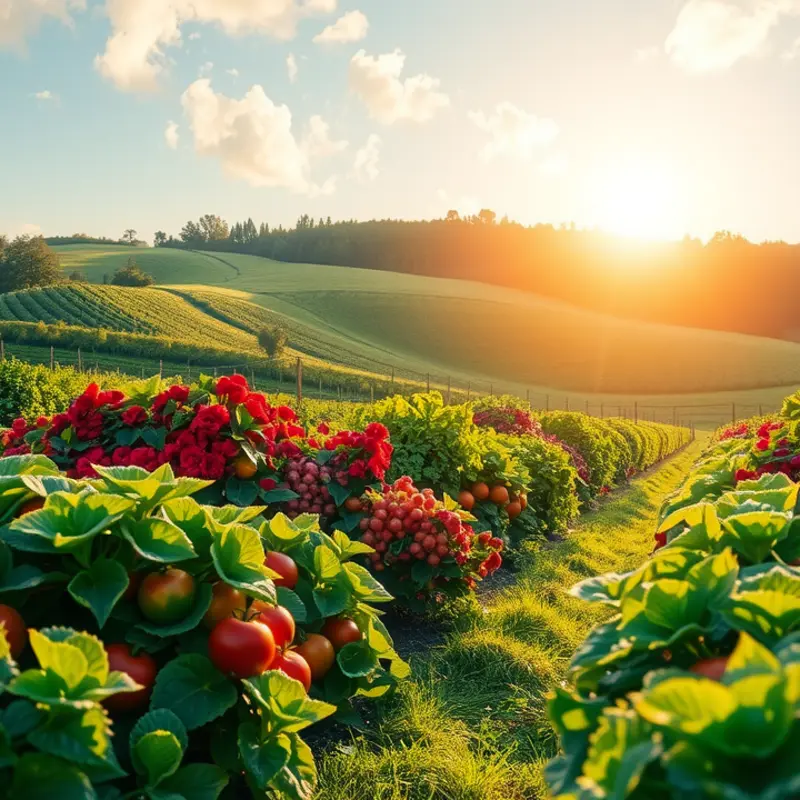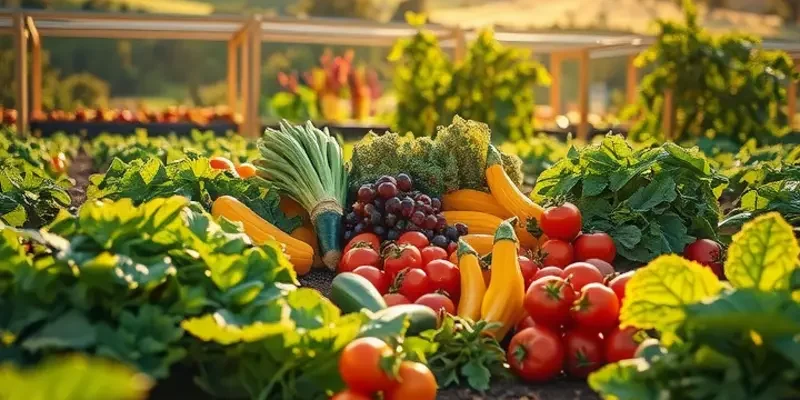Soil health is crucial to sustainable agriculture, and the foods we choose to consume can have a profound impact on it. Practices that prioritize soil vitality not only benefit food production but also foster biodiversity and uphold ecosystems. This exploration into environmentally-conscious food choices will equip you with the knowledge to make informed decisions that support the health of our planet.
The Power of Plant-Based Foods

Plant-based foods hold remarkable potential for enhancing soil health through their cultivation and subsequent benefits. Key among these are legumes, which are naturally adept at nitrogen fixation—an essential process conquering one of the most significant nutrient challenges in soil management. Through symbiotic relationships with rhizobia bacteria, legumes can convert atmospheric nitrogen into a form usable by plants. This not only reduces the need for synthetic fertilizers but also promotes a rich nutrient profile for the soil.
Cover crops, another integral component of plant-based strategies, provide myriad advantages for sustainable agriculture practices. By planting these crops during off-seasons, farmers can protect and enrich soil at times when it might otherwise be bare and vulnerable to erosion. Cover crops, such as clovers or vetch, minimize soil erosion by creating a protective barrier and add organic matter to the soil upon decomposition, thus enhancing soil structure and fertility. Additionally, they play a role in weed suppression, reducing reliance on herbicides.
Seasonal vegetables also contribute positively to soil vitality. Their cultivation in natural cycles respects the land’s time-tested rhythms and encourages biodiversity. By rotating different types of vegetables, farmers can prevent the depletion of specific soil nutrients and reduce pest and disease build-up, creating a more balanced and robust ecosystem. Seasonal planting aligns with the local climate, lessening the need for artificial irrigation and energy consumption.
Collectively, these plant-based choices foster an environment that not only supports healthy crops but also encourages a thriving array of organisms in the soil. This biodiversity is crucial for maintaining soil health as it enhances microbial activity and enriches nutrient cycles. Increased microbial diversity helps in decomposing organic matter, cycling nutrients, and improving soil structure, which are essential for resilient agricultural systems.
Furthermore, plant-based food choices align with sustainable methodologies, reducing carbon footprints and fostering resilience against climate change. By nurturing the earth with these foods, we create a feedback loop that supports both environmental and human health. Integrating such eco-friendly practices highlights the importance of our food choices in global ecological welfare.
For those interested in exploring ways to incorporate eco-smart choices in their culinary practices, this guide offers insights into sustainable kitchen storage methods. Through conscious efforts in both agriculture and daily life, we edge closer to harmony with our environment, promoting not just soil vitality, but a healthier planet.
Regenerative Practices for Sustainable Harvests

Regenerative farming practices are not just an option but a necessity for ensuring soil health and sustainable food production. These methods restore natural ecosystems through sustainable management and rehabilitation, helping farmers achieve abundant yields without depleting resources. One of the cornerstones of regenerative farming is composting. By converting organic waste into nutrient-rich compost, farmers supply vital minerals back into the soil. This system enriches the earth, improving its structure and fertility, thus reducing the need for chemical fertilizers.
Crop rotation is another essential practice. Unlike monoculture farming, rotating crops reduces the buildup of pests and diseases, which naturally thrive under continuous cropping of the same plant. Different crops utilize and replenish varied nutrients, maintaining soil balance and reducing the need for synthetic inputs.
Agroforestry, the integration of trees with crops or livestock, offers unparalleled benefits for the environment. Trees provide shade, mitigate winds, and prevent soil erosion. They also support biodiversity and enhance carbon sequestration. In tandem, the symbiotic relationships between trees and crops result in healthier soil and more resilient agricultural systems.
Promoting biodiversity is vital. Diverse plant and animal life can reduce pest problems and enhance soil structure and organic matter. This variety makes farms less susceptible to extreme weather and other environmental stresses. Implementing these practices not only enhances soil health but also leads to better water retention and reduced need for irrigation, essential for water conservation.
Reducing tillage is another crucial practice. Frequent plowing can disrupt soil structure and lead to erosion. Minimal or zero-till methods help maintain soil integrity, encouraging the growth of beneficial microorganisms crucial for nutrient cycling.
The integration of cover crops, which are planted during off-seasons, protects and replenishes the soil. These crops enhance organic content and prevent erosion, offering a green cover when the main crops are not in place.
Harnessing these methods supports a sustainable future for food systems globally. They decrease reliance on non-renewable resources, foster crisis resilience, and ensure that farming remains viable for generations to come.
For more ideas on minimizing environmental impact in your food practices at home, consider exploring eco-smart storage solutions.
Final words
The choices we make about food have far-reaching implications for the health of our soils and the environment. By incorporating plant-based foods and supporting regenerative farming practices, we can contribute to a more sustainable future. Every small step, from choosing seasonal vegetables to advocating for organic farming, counts toward nurturing our soils and promoting biodiversity. Together, let’s embrace eco-friendly food choices for healthier soils and a thriving planet.








